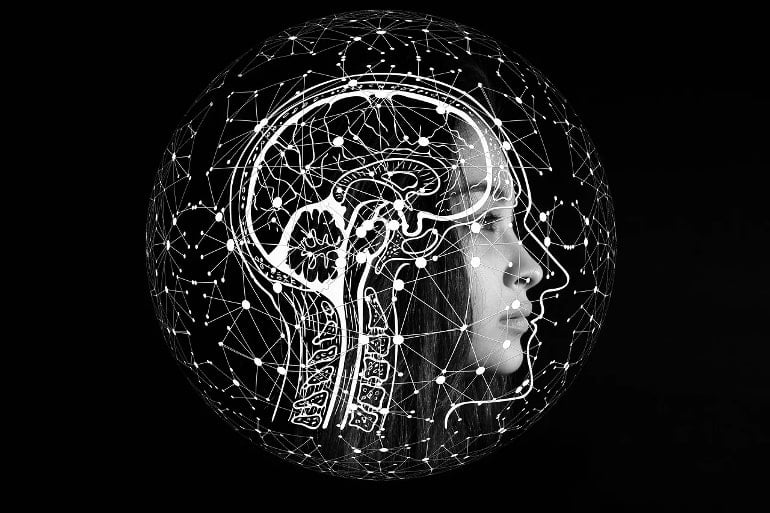Summary: Women who experienced childhood trauma had an increased risk of developing multiple sclerosis later in life. The evidence suggests childhood abuse and trauma can alter the immune system and increase the risk of developing autoimmune diseases.
Source: BMJ
Childhood trauma may be linked to a heightened risk of multiple sclerosis (MS) in later life among women, finds research published online in the Journal of Neurology Neurosurgery & Psychiatry.
The observed associations were strongest for sexual abuse and for experience of several categories of abuse, the findings show.
The evidence suggests that childhood trauma can alter the immune system and may increase the risk of autoimmune disease. Abuse, neglect, and a chaotic home life are also associated with a heightened risk of poor mental and physical health in adulthood. But it’s not known if these experiences might also increase susceptibility to MS.
In a bid to find out, the researchers drew on participants in the nationally representative Norwegian Mother, Father, and Child cohort study.
Nearly 78,000 pregnant women joined the study between 1999 and 2008, and their health was monitored until the end of 2018.
Information on childhood abuse before the age of 18 was gathered through questionnaire responses, while confirmation of MS diagnoses was obtained from linked national health registry data and hospital records.
In all, 14 477 women said they had experienced childhood abuse while 63,520 said they hadn’t. The women with a history of abuse were more likely to be current or former smokers–a known risk factor for MS–to be overweight, and to have depressive symptoms.
Some 300 women were diagnosed with MS during the monitoring period, nearly 1 in 4 of whom (71;24%) said they had been abused as children compared with around 1 in 5 (14,406;19%) of those who didn’t develop MS (77,697).
After accounting for potentially influential factors, including smoking, obesity, educational attainment, and household income, women who had been abused as children were more likely to be diagnosed with MS.
The observed association was strongest for sexual abuse (65% heightened risk), followed by emotional abuse (40% heightened risk), and physical abuse (31% heightened risk).
The risk was further increased for exposure to two categories of abuse (66% heightened risk), rising to 93% for exposure to all three categories, indicating a ‘dose-response’ association, suggest the researchers.
Similar results were obtained after the researchers excluded women who might have been in the early (prodromal) phase of MS when obvious symptoms had yet to appear.

And the association also persisted when women who had already been diagnosed with MS at the start of the study were included.
This is an observational study, and as such, can’t establish cause. And other environmental factors, such as diet, nutrition, physical activity levels, and parental smoking, which weren’t accounted for, might all be independently important, acknowledge the researchers.
They also lacked some potentially important information on how long the abuse lasted, the age at which it started, or what levels of emotional support those abused could draw on.
But there may be plausible biological explanations for the associations found, say the researchers. Childhood abuse can disrupt brain and glandular signalling—the hypothalamic-pituitary-adrenal axis—prompting a proinflammatory state, they say.
“Better understanding of the risk factors and timing of risk exposures, may open doors for prevention and give further insight to disease mechanisms,” they conclude.
About this trauma and multiple sclerosis research news
Author: Press Office
Source: BMJ
Contact: Press Office – BMJ
Image: The image is in the public domain
Original Research: Open access.
“Association of adverse childhood experiences with the development of multiple sclerosis” by Marte-Helene Bjørk et al. Journal of Neurology, Neurosurgery, and Psychiatry
Abstract
Association of adverse childhood experiences with the development of multiple sclerosis
Objective
To study whether exposure to childhood emotional, sexual or physical abuse is associated with subsequent multiple sclerosis (MS) development.
Methods
A nationwide, prospective cohort study based on participants in the Norwegian Mother, Father and Child cohort study. Enrolment took place 1999–2008, with follow-up until 31 December 2018. Childhood abuse before age 18 years was obtained from self-completed questionnaires. We identified MS diagnoses through data-linkage with national health registries and hospital records. The Cox model was used to estimate HRs for MS with 95% CIs, adjusting for confounders and mediators.
Results
In this prospective cohort study, 14 477 women were exposed to childhood abuse and 63 520 were unexposed. 300 women developed MS during the follow-up period. 71 of these (24%) reported a history of childhood abuse, compared with 14 406 of 77 697 (19%) women that did not develop MS. Sexual abuse (HR 1.65, 95% CI 1.13 to 2.39) and emotional abuse (HR 1.40, 95% CI 1.03 to 1.90) in childhood were both associated with an increased risk of developing MS. The HR of MS after exposure to physical abuse was 1.31 (95% CI 0.83 to 2.06). The risk of MS was further increased if exposed to two (HR 1.66, 95% CI 1.04 to 2.67) or all three abuse categories (HR 1.93, 95% CI 1.02 to 3.67).
Interpretation
Childhood sexual and emotional abuse were associated with an increased risk of developing MS. The risk was higher when exposed to several abuse categories, indicating a dose–response relationship. Further studies are needed to identify underlying mechanisms.







